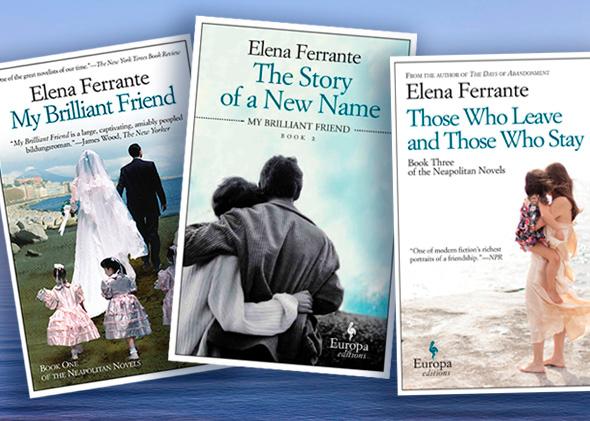At this point, it’s been well-documented that—perhaps more than we enjoy unpacking the friendship at the heart of Elena Ferrante’s Neapolitan novels—readers like speculating about who exactly Elena Ferrante is. Depending on whom you ask, this speculation is either the product of excellent PR on the part of her publisher, or something that drives Ferrante bonkers. The reclusive Italian writer uses a pseudonym that shares a first name with the celebrated novels’ protagonist, Elena, which is one of many indications that the story might be autobiographical. With bits like that, she is practically encouraging readers to draw their own conclusions.
So, like all fans, hungry for any proof that Ferrante isn’t a figment of my imagination, I was speechless with excitement when the Paris Review revealed they’d be conducting the first-ever in-person interview with her. After all, if there’s any place that could get Ferrante to say something—anything!—it’s the Paris Review, master of the longform literary interview. I was ready to call in late to work and read—and reread—the issue looking for clues. Surely there would be some morsels of information to feed my obsession.
There was good reason to think so. In 2010, when the Paris Review put its interview archives online, Dwight Garner waxed poetic about their storied history, calling them “about as canonical, in our literary universe, as spoken words can be.” He continued: “The best of them have always gone a bit off the rails. They’re so tangled, funny and unexpectedly revealing that they could be mounted on Broadway, in the style of Frost/Nixon.”
But alas, the Ferrante interview is a let-down. It turns out Ferrante is seemingly nothing like her fictional alter ego. A Paris Review interview with Elena Greco would be full of revelations about her childhood, and, perhaps, her sexual conquests. Of course, authors don’t have to be as interesting as the characters they create—and that’s Ferrante’s point: “The media simply can’t discuss a work of literature without pointing to some writer-hero.” But I love knowing about the authors of books I read and enjoy not in an US Weekly celebrity-sighting way, but in a, well, Paris Review interview kind of way: learning the work habits of creative types, seeing photos of their work stations, reading their marginalia. If they’re as interesting as I’d imagined, great. If they’re boring, it doesn’t take away from the enjoyment I get from devouring their books. And if they use a pseudonym, I’m going to try to figure out why.
A large part of the interview involves Ferrante somewhat confusingly explaining and reinforcing her reasons for extreme privacy: “It’s as if literature were not capable of demonstrating its seriousness simply through texts, but required ‘external’ credentials.” But then why did you agree to this interview? (And why didn’t your interviewers ask you that question?!)
Of course, there are a few brief, shining moments in the interview where Ferrante sneaks in a Ferrante-ism: She talks about a word she coined with her mother, “frantumagalia—bits and pieces of uncertain origin which rattle around in your head, not always comfortably.” She also interestingly suggests that the reason readers identify with both Lila and Elena is that “When Lila’s pace becomes unsustainable, the reader grabs onto Elena. But if Elena falls apart, then the reader relies on Lila.” I don’t know if I agree with that, but I’m definitely bringing it up at my next book club.
In the end, the interview’s biggest revelation is that Ferrante has won. We should let the books speak for themselves.
You can read the entire interview in the most recent issue of the Paris Review, an excerpt of which is online.
